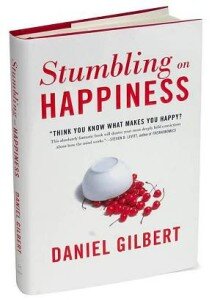
There’s something oddly poetic about the way we give thanks in our culture. Once a year we clear our schedules, gather round the table, and share a meal with those we love most in this world. We collectively remind ourselves to be grateful for what we have, and then promptly forget it all the next day when we race out to buy each other more stuff on deep discount.
Thanksgiving may be the time most of us reconnect with these feelings, but the holiday doesn’t own gratitude. In fact, we might be better off keeping some leftovers so we can enjoy throughout the year.
The science is overwhelming at this point:
Gratitude changes us, and it changes us for the better.
This week we’re sharing insights from some of the world’s most well-respected doctors and scientists — those who have dedicated their lives to studying happiness, humility, and (you guessed it) gratitude. May it bring you peace during this difficult time, and inspire you to inject gratitude into your daily life. Let’s not save it all for one day a year.
Just like stuffing, I’ve found there’s usually more than enough to go around.

1. Gratitude helps us see the silver lining in any situation.
What is gratitude, anyway? Robert Emmons, Psychologist at UC Davis and expert in the field of gratitude, defines it in two parts:
“First, gratitude is an affirmation of goodness. We affirm that there are good things in the world — gifts and benefits we’ve received. This doesn’t mean that life is perfect; it doesn’t ignore complaints, burdens, and hassles. But when we look at life as a whole, gratitude encourages us to identify some amount of goodness in our life. The second part is figuring out where that goodness comes from. We recognize the sources of this goodness as being outside of ourselves.”
Cultivating gratitude in our own lives invites us to view the world with greater perspective. There is good in the world… and the source is outside of ourselves. This offers a profound shift in how we operate: good things can happen to us and they are out of our control. The same is true with bad things. And through that acknowledgement, we can learn to see the silver lining in any situation.
2. Gratitude has lasting effects on the brain.
In 2017 two psychologists at Indiana University, Joshua Brown & Wong, published a study on gratitude. A group of nearly 300 adults seeking therapy services was divided up and randomly assigned to one of three conditions:
a) Psychotherapy only (control group)
b) Psychotherapy plus a weekly expressive writing assignment
c) Psychotherapy plus weekly gratitude writing
 The researchers wanted to know whether complementary services (like daily journaling) would have a measurable effect on a patient’s mental health, and even they were surprised by their findings.
The researchers wanted to know whether complementary services (like daily journaling) would have a measurable effect on a patient’s mental health, and even they were surprised by their findings.
Participants in the gratitude condition were instructed to write letters expressing gratitude to others, whereas those in the expressive writing condition wrote about their deepest thoughts and feelings about stressful experiences. The researchers measured the results throughout, as well as four and twelve weeks after the conclusion of the writing intervention. Across the board, participants in the “Gratitude” condition reported significantly better mental health than those in the “Expressive” and “Control” conditions. The scientists also found a lower percentage of what they called negative emotion words in the “Gratitude” group.
Not quite believing what they were finding, the researchers actually pursued a follow-up study where they measured brain activity using an fMRI scanner. Incredibly the “Gratitude” group showed greater activation in the medial prefrontal cortex when they experienced gratitude than either of the other two groups. And this was done weeks after the conclusion of the previous study. What this indicates is that simply expressing gratitude (even privately) can have lasting effects on the brain.

3. Gratitude TURNS “ME” INTO “we.”
Dan Gilbert, Harvard Psychology Professor and author of the bestselling book Stumbling On Happiness, has spent much of his career studying this subject. Back in 2012 he was interviewed for the Harvard Business Review and he spoke at length about his findings:
“If I had to summarize all the scientific literature on the causes of human happiness in one word, that word would be “social.” We are by far the most social species on Earth. Even ants have nothing on us. If I wanted to predict your happiness, and I could know only one thing about you, I wouldn’t want to know your gender, religion, health, or income. I’d want to know about your social network—about your friends and family and the strength of your bonds with them.”
Gratitude is about harnessing the power of community. It forces us to acknowledge that we are not alone. While they may seem like an obvious sentiment, Gilbert says that by turning “me” into “we,” it invites us to broaden our view of the world. Our failures are no worse than what others experience and our success often relies on others around us. This empathic stance changes our perspective, and leads to more meaningful connections to those in our community.
 4. Gratitude releases us from negative emotions.
4. Gratitude releases us from negative emotions.
How does expressing gratitude improve well-being?
Dr. Laurie Santos, Yale Psychology Professor and Host of The Happiness Lab Podcast explains: “If you tell someone you’re thankful for them, first, you have to have a social connection. Second, you’re doing something nice for somebody else…and you’re feeling the gratitude inside when you’re expressing it.” There just isn’t much room for hate, when you got all that love inside. “Even just talking to the barista at the coffee shop, making an effort to connect more in real life, and prioritizing time with family and friends can promote well-being,” she adds.
Dr. Santos teaches the most popular class at Yale (seriously, Google it), and has gathered all of that material to present on a weekly show. It covers the surprising science behind happiness, and is well worth a listen if you find yourself with a little free time. If you’re unfamiliar with the show, then we’re overjoyed to be able to introduce you.
5. GRATITUDE IS ALL ABOUT FREQUENCY.
Dan Gilbert (mentioned earlier) often quotes Dr. Ed Diener, another prominent psychologist in the field of well-being and happiness. His research over the years has essentially shown that “the frequency of your positive experiences is a much better predictor of your happiness than the intensity of your positive experiences.”
Which seems counterintuitive, right?
When we think about what would make us happy, we tend to think of intense events — meeting our favorite movie star, winning the Pulitzer, having the wedding of our dreams. But what Diener and his colleagues have repeatedly shown is that the quality of your positive experiences doesn’t matter nearly as much as the frequency. Interpreted another way Diener explains, “Somebody who has a dozen mildly nice things happen each day is likely to be happier than somebody who has a single truly amazing thing happen once a year.” This seems to fly in the face of what we would expect to be true, but the data doesn’t lie.
Which is why the idea of saving all our gratitude for Thanksgiving seems a bit foolish.

SO HOW DO WE BRING GRATITUDE INTO OUR DAILY LIVES?
By celebrating the little things. Wear comfortable shoes, eat that extra french fry, give your husband a big kiss, and carve out the time you need for your daily practice. It sounds like small stuff, and it is. But it turns out — the small stuff matters. This holiday season will be unlike any other, but it’ll provide you with an opportunity to put your money where your mouth is. Are you able to find the silver lining in a global pandemic? This Thanksgiving when you’re packing up all those leftovers, make a conscious decision to pack up some gratitude as well. Just like your daily yoga practice, we hope you’ll make it a key part of your daily routine.






